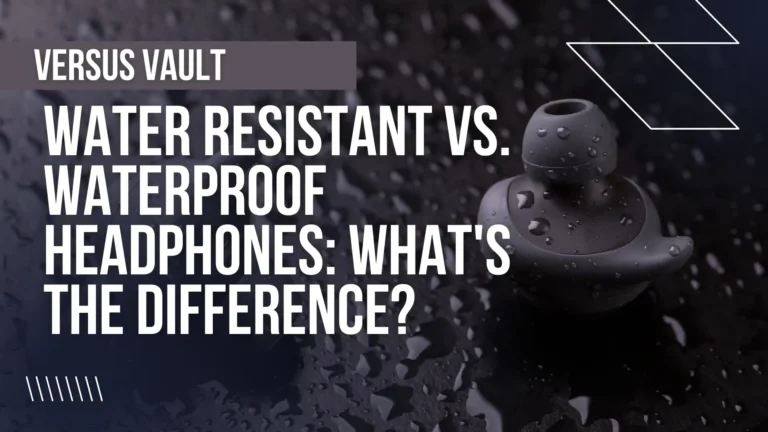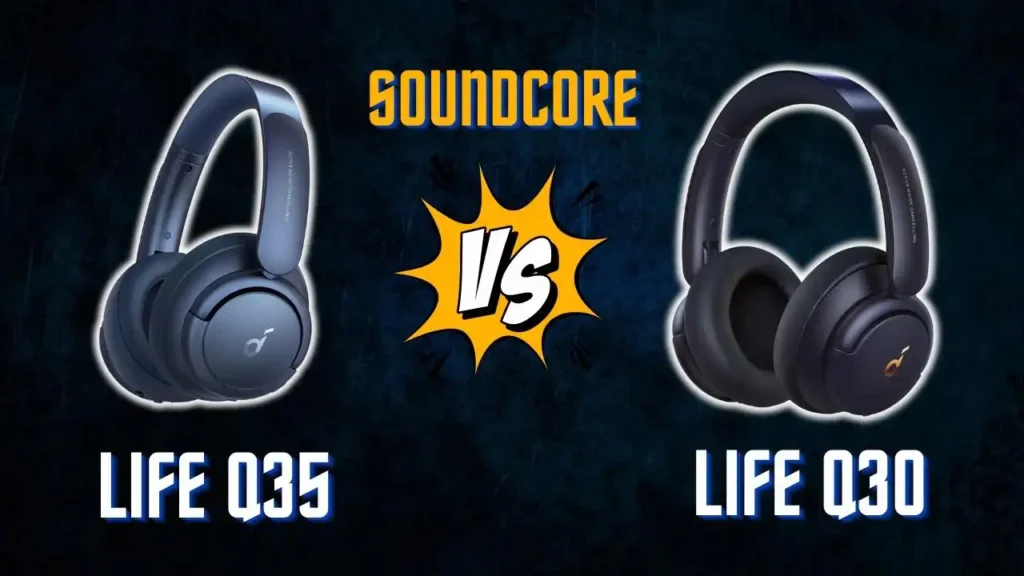| Water Resistance | Waterproof | IP Rating | Recommended Use |
|---|---|---|---|
| Suitable for light rain and sweat | Can withstand submersion for short periods | Check IP Rating for specifics | Gym workouts, light activities |
| Not ideal for extended exposure to water | Built for aquatic adventures | Higher IP ratings for deeper submersion | Swimming, surfing, scuba diving |
Imagine this: You’re rocking out to your favorite tunes during a run, sweat dripping down your face, when a sudden downpour hits. Or, maybe you’re cruising down the river on your kayak, waves lapping at your ears. The last thing you want is your prized headphones becoming casualties of your active lifestyle. But wait, aren’t they all “waterproof“ nowadays?
Hold on a second, fitness fiend! The terms “water resistant” and “waterproof” are thrown around like gym towels, but they’re far from interchangeable. Understanding the difference is crucial before you dive headfirst (pun intended) into your next headphone purchase.
Water-resistant or waterproof headphones: What sets them apart?

what does water resistance mean?
Think of water resistance as a raincoat. It can handle sprinkles and light showers, but a full-on monsoon will leave you soaked. That’s how your sweat-proof earbuds fare – perfect for a jog, but dunk them in the pool, and you’re looking at a watery grave for your audio.
What does waterproof mean?
Waterproof, on the other hand, is like a scuba suit. It’s built to withstand full submersion, like the depths of your bathtub or even a shallow dive. Picture high-performance headphones blasting tunes while you conquer waves on your surfboard.
What is the IPX rating system?

“But how do we quantify this wet-weather prowess? Enter the IP rating system, a universal language for water resistance and proofing. These two-digit codes, like IP67, tell you a lot. The first digit indicates protection against dust and solid particles, while the second reveals a headphone’s watery tolerance.”
Here’s a quick breakdown:
| IP Rating (Second Digit) | Level of Protection | Example |
|---|---|---|
| 0-3 | Minimal to no protection | Not ideal for even light splashes |
| 4 | Splashproof | Can handle splashes and brief rain |
| 5 | Water-resistant | Suitable for heavy rain and sweat |
| 6-7 | Waterproof | Can withstand submersion up to 1 meter for short periods |
| 8 | Highly waterproof | Safe for deeper submersion (check manufacturer specs) |
The Risks of Using Water-Resistant Earbuds in Deep Water
So, can you toss your water-resistant buds in the pool while emulating Michael Phelps? Absolutely not! That flimsy raincoat won’t survive a watery plunge. Remember, these ratings have limitations. A rogue wave or extended dunking can breach even the most robust defenses.
“Choosing the wrong type can lead to irreparable damage, a drowned wallet, and a soundtrack of silence to accompany your watery woes.”
Think of it this way: your water-resistant phone might survive a coffee spill, but would you take it snorkelling? Exactly. Choosing the wrong type can lead to irreparable damage, a drowned wallet, and a soundtrack of silence to accompany your watery woes.

Benefits for Every Drop:
Both water-resistant and waterproof headphones have their niche.
Water-resistant buds are your gym buddies, perfect for pounding the pavement or pumping iron without worrying about sweat. They’re lightweight, affordable, and let you focus on your workout, not your audio equipment.
Also: Best Shower Headphones.
| Water-Resistant Headphones | Advantages | Considerations |
|---|---|---|
| Perfect for gym workouts | Affordable | Not suitable for swimming or heavy water exposure |
| Lightweight and comfortable | Suitable for light rain and sweat | Limited protection in extreme conditions |
Waterproof headphones, on the other hand, are the aquatic adventurers. They embrace the elements, whether you’re slicing through waves on a surfboard or exploring coral reefs during a scuba dive. Their sealed design keeps the tunes pumping and the water out, ensuring your underwater soundtrack stays uninterrupted.
| Waterproof Headphones | Advantages | Considerations |
|---|---|---|
| Ideal for swimming, surfing, and scuba diving | Can withstand submersion | Generally more expensive |
| Sealed design keeps water out | Suitable for aquatic activities | May be heavier than water-resistant counterparts |

Making a Splashing Choice
Before you get swept away by the hype, ask yourself: where will these headphones live most of their lives? If you’re a landlubber with a passion for fitness, water resistance is your jam. But if you’re an aquatic soul drawn to the deep, waterproof is the way to go. Remember, the IP rating is your guide, but always check the manufacturer’s specifications for specific details and limitations.
“Don’t just focus on water resistance/proofing, though. Sound quality, fit, and price are equally important. After all, what good are waterproof headphones if they sound like someone gargling gravel and fall out every time you turn your head?”
So, the next time you’re on the hunt for headphones, remember: it’s not just about the hype. Understanding the difference between water resistance and waterproofing can save you from a watery disaster and keep your tunes flowing, no matter where your active lifestyle takes you. Now go forth and conquer the elements, sound in tow!
Check it out to discover the best waterproof headphones.

Conclusion
In the battle between water resistance and waterproofing, there’s no one-size-fits-all. It’s about finding the right fit for your lifestyle. Whether you’re dancing in the rain or diving into the depths, make an informed choice. After all, a good soundtrack should follow you, not drown in the background.
FAQ
Q: Can I swim with water-resistant headphones?
A: Water-resistant headphones can handle splashes and brief rain, but swimming is pushing it. For underwater melodies, go for waterproof.
Q: Are waterproof headphones heavier?
A: Generally, yes. The added protection comes with a bit of weight, but it’s a small price to pay for an uninterrupted aquatic audio experience.
Q: What if I exceed the recommended submersion depth?
A: Don’t test fate. Even highly waterproof headphones have limits. Exceeding them might turn your music session into a eulogy for your gadgets.




